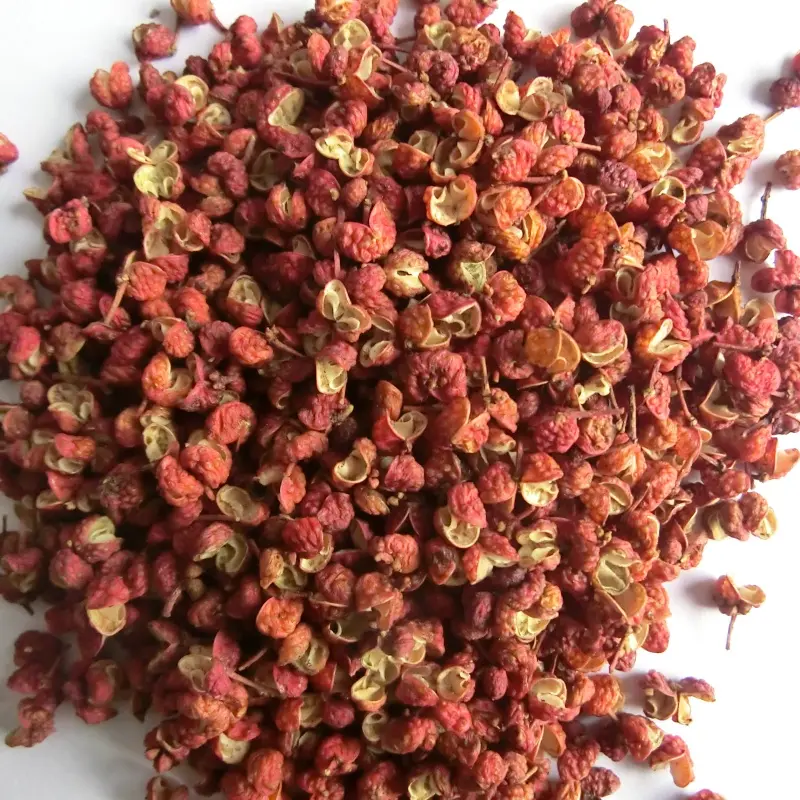A Taste of Spice: Szechuan Pepper vs Black Pepper
Spices are the unsung heroes of the culinary world, capable of transforming dishes from bland to bold with just a pinch. Among the many spices that have earned a permanent place in kitchens worldwide, pepper stands out as one of the most widely used and cherished. Yet, not all peppers are created equal. Within this broad category, two varieties often become the focus of culinary debates: Szechuan pepper and black pepper.
Despite sharing the name “pepper,” these two spices belong to entirely different botanical families and offer vastly distinct flavor experiences. Black pepper, often referred to as the “king of spices,” is celebrated for its sharp, earthy heat, which comes from the compound piperine. Szechuan pepper, on the other hand, delivers a unique numbing sensation and a citrusy aroma, thanks to its active compound hydroxy-alpha-sanshool.
This article dives deep into the fascinating world of these two spices, exploring their origins, flavor profiles, and traditional culinary uses across cultures. From black pepper’s role in Western classics like steak au poivre to Szechuan pepper’s indispensable presence in fiery Sichuan dishes, their versatility and unique characteristics are undeniable. Additionally, we’ll examine their health benefits and how each spice contributes to flavor innovation worldwide, backed by examples and data.
1. Origins and Botanical Classification
Black Pepper (Piper nigrum):
Black pepper, known as the "king of spices," originates from the tropical regions of India, specifically the Malabar Coast. It comes from the dried fruit of the Piper nigrum plant, a flowering vine that produces peppercorns. These peppercorns are harvested when they are still green and then dried to turn black. The plant is part of the Piperaceae family.
Szechuan Pepper (Zanthoxylum simulans):
Szechuan pepper, also called Chinese pepper or Sichuan pepper, is a key ingredient in the cuisine of the Sichuan province in China. It comes from the dried husks of the Zanthoxylum simulans tree, a member of the Rutaceae family (which also includes citrus). Despite its name, it is not related to black pepper in any botanical sense, but its name is a product of its pungent, spicy qualities, which can mimic some of the heat black pepper imparts.
| Pepper Type | Botanical Family | Geographic Origin | Plant Source |
|---|---|---|---|
| Black Pepper | Piperaceae | India (Malabar Coast) | Fruit of Piper nigrum vine |
| Szechuan Pepper | Rutaceae | China (Sichuan Province) | Dried husk of Zanthoxylum simulans |
2. Flavor Profile: Heat vs. Tingling
The most significant difference between Szechuan pepper and black pepper lies in their flavor profiles. While both are spicy, they provide different types of heat.
Black Pepper: The heat from black pepper comes primarily from piperine, a compound that activates the pain receptors in your mouth, giving a sharp, direct heat sensation. The flavor is warm, earthy, and mildly floral, with a slight citrusy undertone. Black pepper is widely used across various cuisines, particularly in Western cooking.
Szechuan Pepper: Szechuan pepper offers a more complex sensory experience. Instead of just heat, it imparts a numbing sensation in addition to spiciness, often described as "tingling" or "buzzing" in the mouth. This unique sensation comes from hydroxy-alpha-sanshool, a compound that stimulates the nerve endings in the mouth and tongue. Its flavor is citrusy and floral, with a slightly bitter, earthy base. The numbing quality of Szechuan pepper is integral to the bold and fiery flavor profiles of Sichuan cuisine.
| Pepper Type | Primary Heat Compound | Flavor Characteristics | Mouth Sensation |
|---|---|---|---|
| Black Pepper | Piperine | Warm, earthy, mildly floral, citrusy | Sharp, direct heat |
| Szechuan Pepper | Hydroxy-alpha-sanshool | Citrusy, floral, earthy, slightly bitter | Numbing, tingling heat |
3. Culinary Uses: Western vs. Asian Cuisines
Both Szechuan pepper and black pepper have distinct roles in cooking, and their uses are often shaped by regional cuisines.
Black Pepper: Black pepper is an all-purpose spice in Western kitchens. It is commonly used in marinades, rubs, soups, stews, sauces, and as a table condiment. It pairs well with virtually any savory dish, from pasta to grilled meats, vegetables, and eggs. Its versatility makes it an essential pantry item worldwide.
Szechuan Pepper: Szechuan pepper, on the other hand, is primarily used in Sichuan cuisine. Its numbing quality is essential to many traditional dishes like mapo tofu, kung pao chicken, and dan dan noodles. Often, it is used in combination with chili peppers to create the famous "mala" flavor — a balance of numbing (麻) and spicy (辣). It is also used in spice blends like five-spice powder and in sauces such as chili oil.
Example Dish Comparison:
Black Pepper: A classic steak au poivre is made with black peppercorns that are crushed and used as a crust on the steak, delivering a sharp and earthy flavor when seared.
Szechuan Pepper: In a dish like Sichuan hot pot, Szechuan peppercorns are added to the broth, creating a unique tingling sensation that complements the fiery heat of the chili peppers.
| Dish Type | Pepper Type Used | Flavor Impact |
|---|---|---|
| Steak au Poivre | Black Pepper | Sharp, earthy heat with robust flavor |
| Sichuan Hot Pot | Szechuan Pepper | Numbing, tingling sensation with spicy heat |
4. Health Benefits and Considerations
Both Szechuan pepper and black pepper offer health benefits, though their effects are distinct.
Black Pepper: Black pepper has been praised for its anti-inflammatory, antioxidant, and digestive benefits. The active compound piperine has been shown to enhance nutrient absorption in the body and may improve metabolism. It also contains vitamin C and manganese.
Szechuan Pepper: Szechuan pepper, while not as widely studied, is believed to have similar health benefits, including improved digestion and circulation. The numbing sensation may help with pain relief, and it is thought to have antimicrobial properties. However, it is more commonly valued for its unique flavor than for its medicinal properties.
| Pepper Type | Health Benefits | Active Compounds |
|---|---|---|
| Black Pepper | Anti-inflammatory, antioxidant, enhances digestion | Piperine, Vitamin C, Manganese |
| Szechuan Pepper | Improves digestion, pain relief, antimicrobial | Hydroxy-alpha-sanshool, Flavonoids |
5. Conclusion
Szechuan pepper and black pepper are both invaluable spices, but they offer vastly different culinary experiences. While black pepper provides a straightforward, sharp heat that enhances a wide range of dishes, Szechuan pepper offers a complex, numbing sensation paired with spicy and floral notes, making it indispensable in Sichuan cuisine. Whether you’re looking to add depth and warmth to a dish or explore the exciting combination of numbing and spicy, both peppers have their place in the kitchen. The choice between Szechuan pepper and black pepper depends not only on personal taste preferences but also on the type of dish being prepared.
In the end, both spices have earned their place in the pantheon of essential ingredients — proving that, while they may share a common name, their impact on the palate is truly unique.
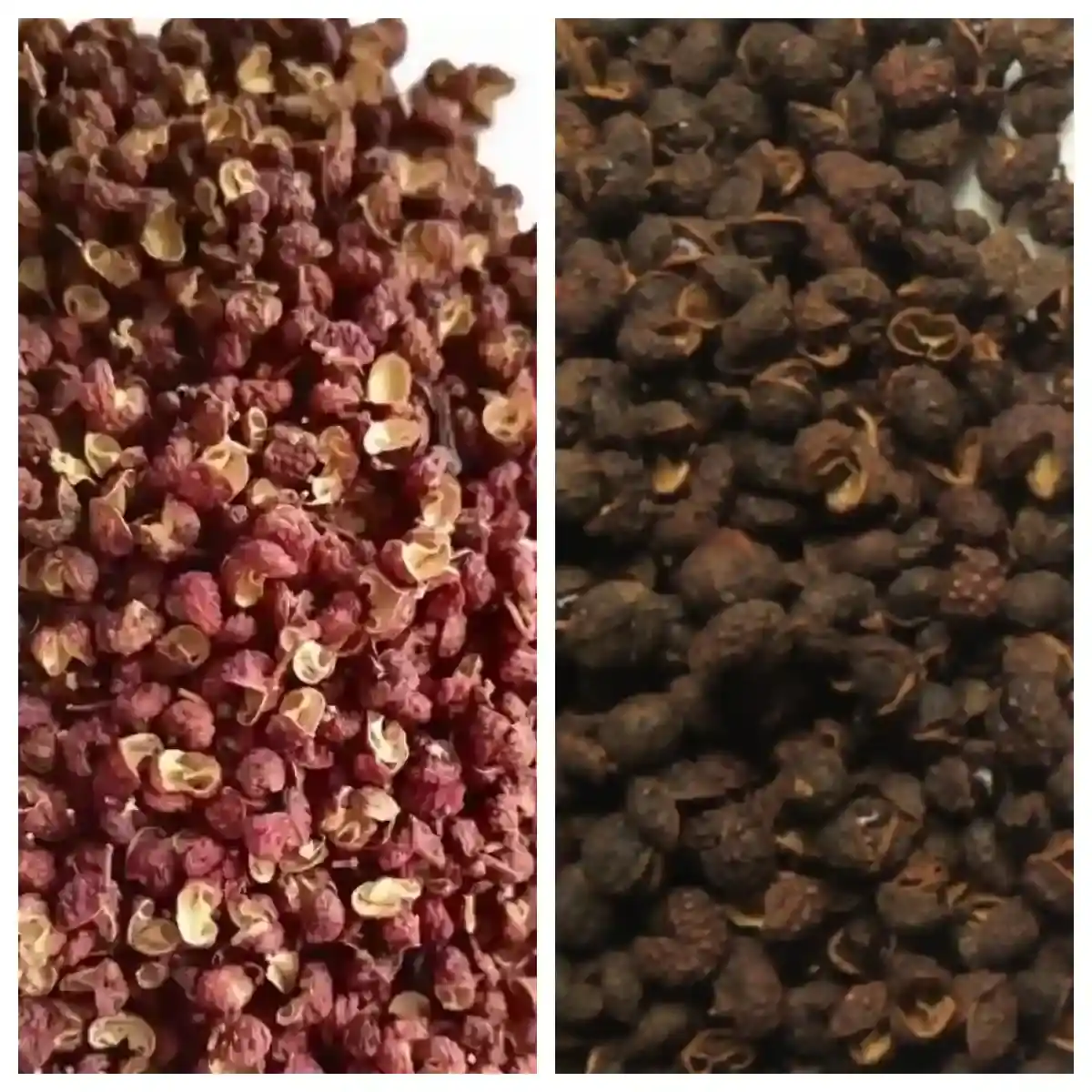
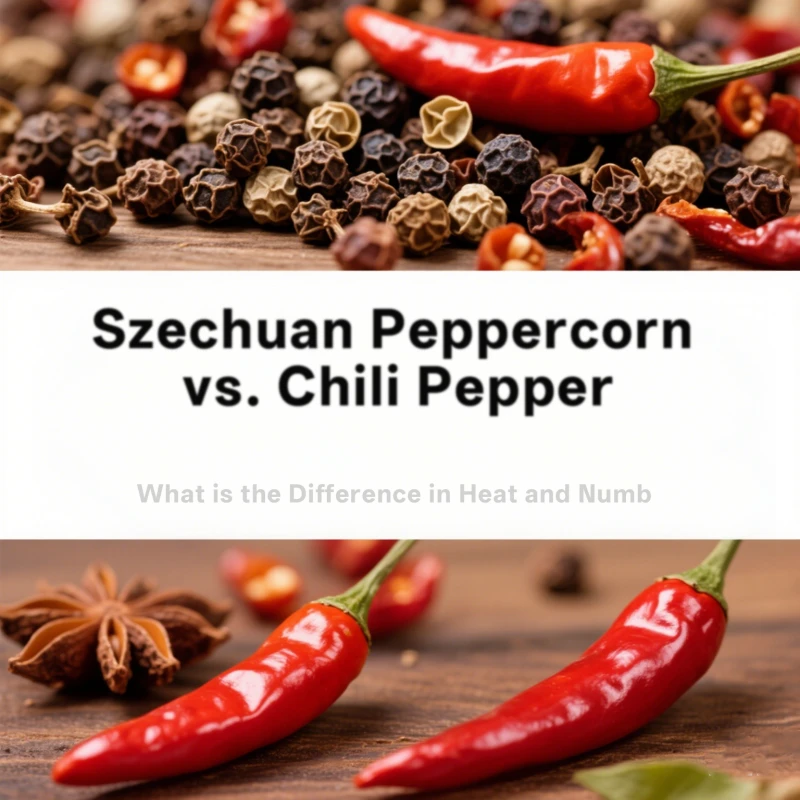
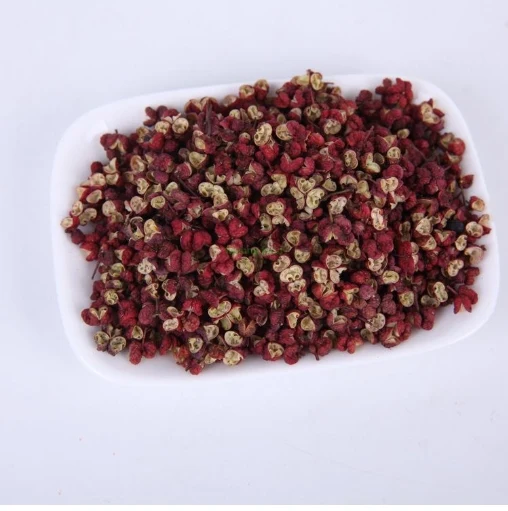
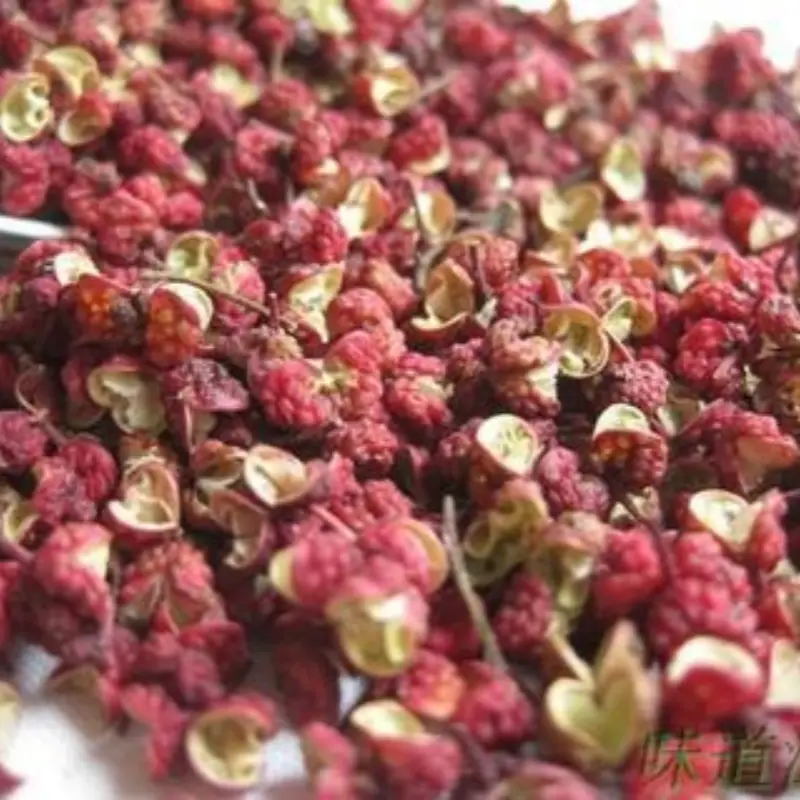

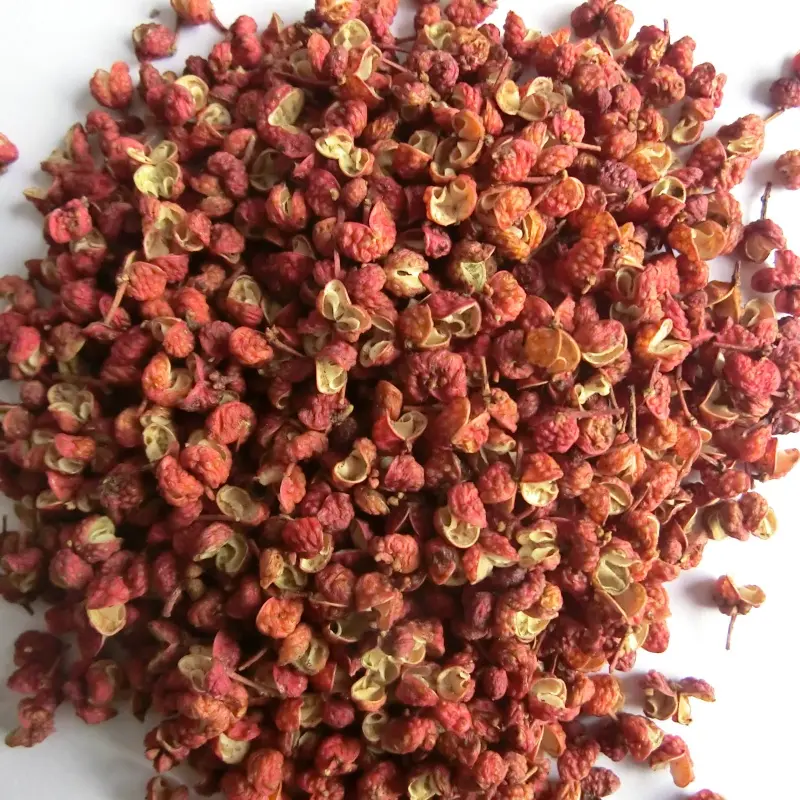
811.webp)
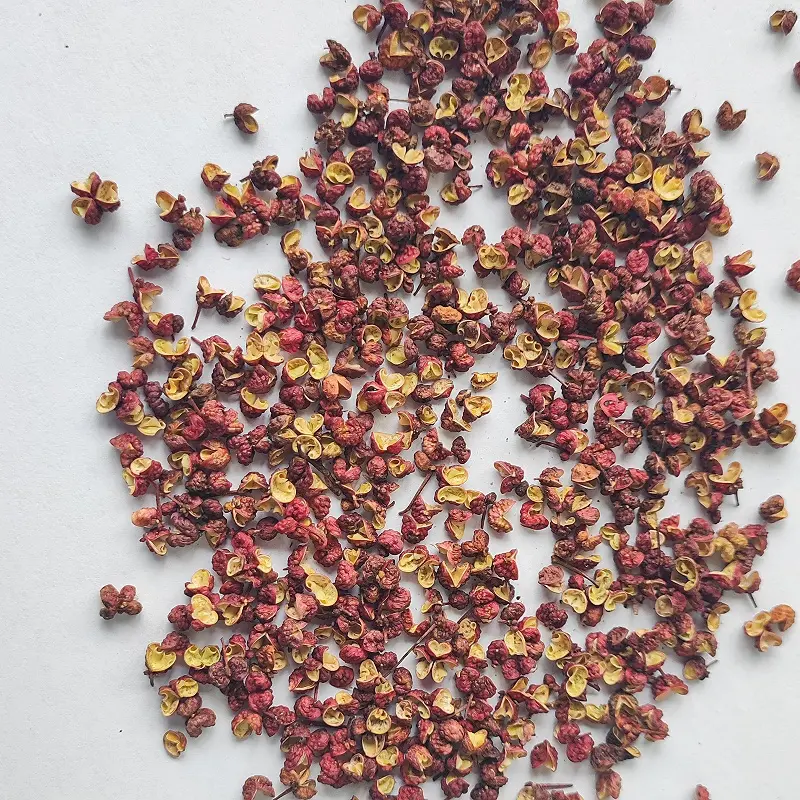
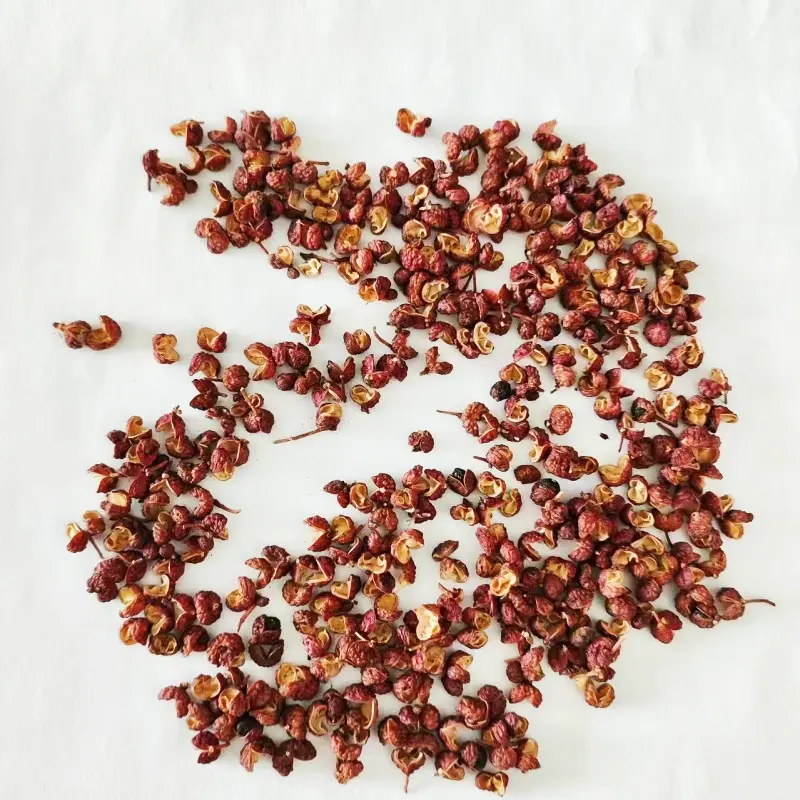
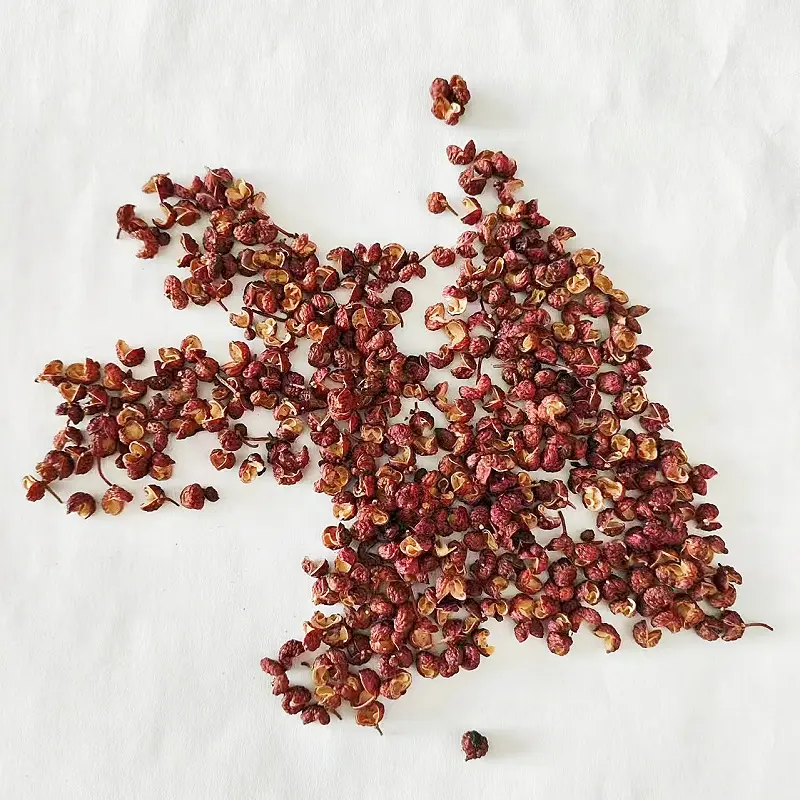
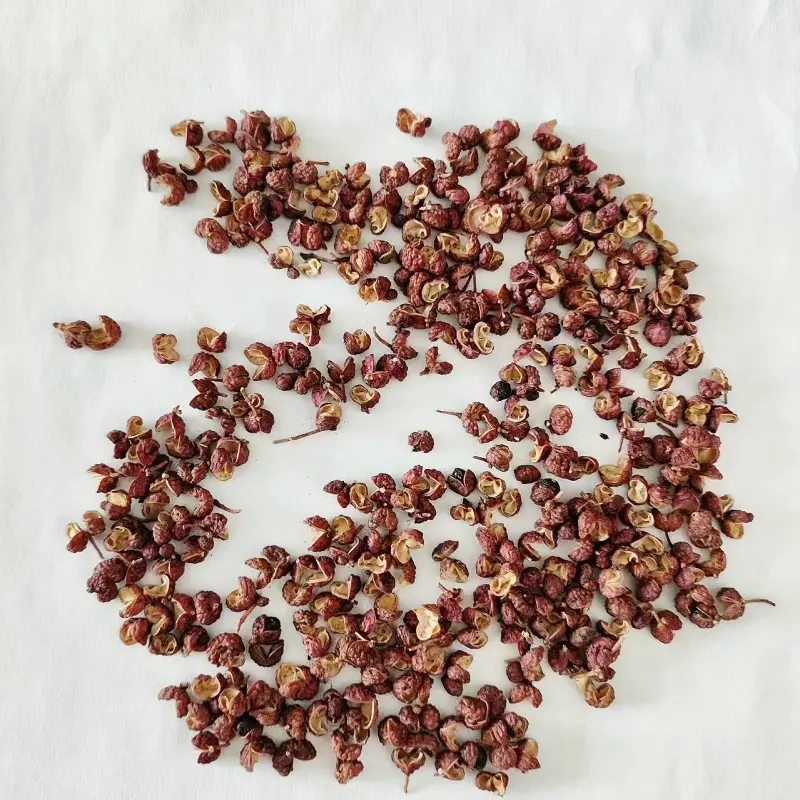
114.webp)
